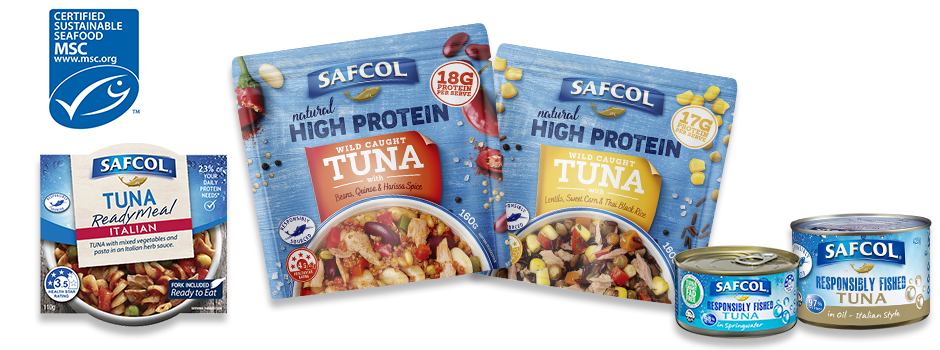Seafood: A Healthy Choice for Gut Health and Metabolism
Posted on : June 3, 2020
by Ashleigh Feltham
Accredited Practising Dietitian and Accredited Nutritionist
Did you know that different types of protein sources have different effects on your gut microbiome and metabolism?
Your gut microbiome is affected by many things including food, stress, and medications. The type of proteins in your diet is a factor which contributes to the amount of healthy and not so healthy bacteria in your gut. The positive effects of plant-based proteins have been shown to increase the number of gut health microbes. The opposite has been found for animal-based proteins like red meat. Seafood, however, is healthy for your gut health, so not all types of animal proteins are bad.

Research has found that the gut microbes which are promoted through a diet of lean seafood produced high amounts of ‘good’ HDL cholesterol and high levels of TMAO. TMAO is a compound that results from bacterial action in your gut. Depending on the protein you eat, the effect of TMAO can be positive towards heart health or negative. Research has shown that TMAO as a compound is positive toward heart health when lean seafood protein, as well as plant protein, is digested by the bacteria in your gut. The complexity of food is always giving us new knowledge to ponder and it is the whole food matrix which needs to be taken into consideration that ultimately determines the health effects of a food on your body.
Another study found that lean seafood improved insulin sensitivity and reduces amino acid markers. Amino acid markers, namely isoleucine and valine which are associated with increased diabetes risk and insulin resistance are reduced by eating lean seafood. Insulin is a hormone which is vital to be able to take sugar from your blood and store it in your cells. Without this normal release of insulin, you are at risk of developing insulin resistance and type 2 diabetes.
There is even more good news of the effects of incorporating lean seafood in your diet. Another study found that subjects which included lean-seafood assisted the body in using up other fat stores as energy, which ultimately means less fat is stored.
Take home message
The role of different proteins on your gut health and metabolism is complex. Research is still ongoing, but from the results thus far incorporating lean seafood like the many high-quality sources found at Safcol is a healthy choice for both gut health and metabolism.

References:
- Schmedes M, Brejnrod AD, Aadland EK, et al. The Effect of Lean-Seafood and Non-Seafood Diets on Fecal Metabolites and Gut Microbiome: Results from a Randomized Crossover Intervention Study. Mol Nutr Food Res. 2019;63(1):e1700976. doi:10.1002/mnfr.201700976.
- Tomasz Huc, Adrian Drapala, Marta Gawrys, Marek Konop, Klaudia Bielinska, Ewelina Zaorska, Emilia Samborowska, Aleksandra Wyczalkowska-Tomasik, Leszek Pączek, Michal Dadlez, Marcin Ufnal. CHRONIC, LOW-DOSE TMAO TREATMENT REDUCES DIASTOLIC DYSFUNCTION AND HEART FIBROSIS IN HYPERTENSIVE RATS.. American Journal of Physiology-Heart and Circulatory Physiology, 2018; DOI: 10.1152/ajpheart.00536.2018



